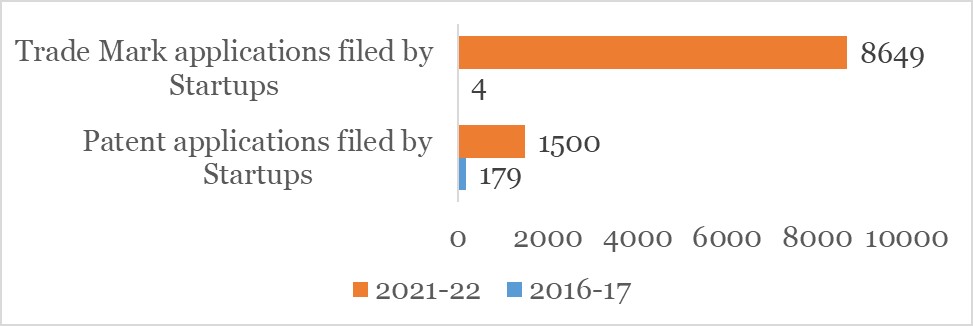7667766266
enquiry@shankarias.in
The Scheme for Facilitating Start-Ups Intellectual Property Protection (SIPP) is one of the government initiatives to support the start-up ecosystem.
India ranked 40th in the 2022 edition of the World Intellectual Property Organisation’s Global Innovation Index.
The office of (CGPDTM), generally known as the Indian Patent Office, is an agency under the Department for Promotion of Industry and Internal Trade that administers the Indian law of Patents, Designs and Trade Marks.
India is now the hub of start-up ecosystem in the world, ranking 3rd with 90,000 start-ups and 107 unicorn companies worth 30 billion dollars.

References